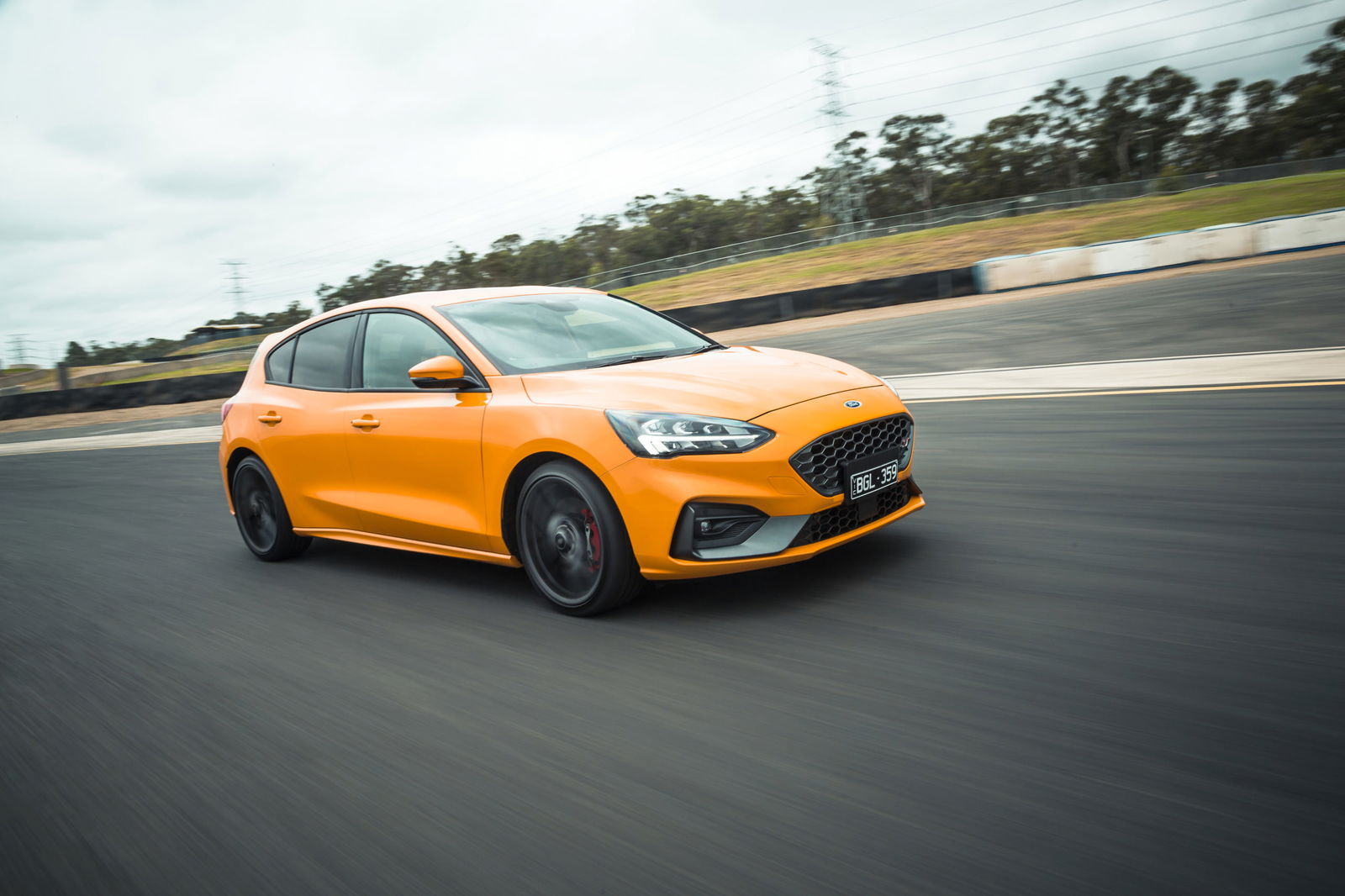
For more than 40 years the hot hatch formula has been the same – take a small car and put a powerful petrol engine under the bonnet. But the hot hatch as we know it looks set to end.
Stricter emissions standards are increasingly putting pressure on car makers to reduce their average CO2 emissions across their fleet of models or face hefty financial penalties; which puts pressure on low-volume but high CO2 producing cars like hot hatches. Ford has recently cancelled plans for the next-generation Focus RS, citing the cost of developing a new, more efficient powertrain as an insurmountable obstacle.
This week Ford Australia is launching the latest generation Focus ST, which is powered by a 2.3-litre turbocharged four-cylinder petrol engine, and joins the recently arrived turbocharged three-cylinder Fiesta ST.
Ford Performance Europe manager, Stefan Muenzinger, told Australian media this week that the increasingly tighter emissions standards make it difficult to produce purely petrol-powered performance cars. When asked if it was likely the current generation Focus and Fiesta ST would be the last of their kind, without electrification, Meunzinger admitted that was likely the case.
“Manufacturers must meet CO2 targets,” he explained. “I think the answer is somewhat yes [they will be the last of their kind]. If you do a fully conventional [Focus] RS-style product with CO2 emissions above 200g/km, that really hurts you for your overall fleet compliance. It has a negative impact due to CO2 and penalties.”

And Ford is not alone. French brand Peugeot, which has a long and illustrious hot hatch legacy, has reportedly canceled plans for a petrol-powered version of its latest generation 208 GTi citing the emissions restrictions as the reason.
Which means the next wave of hot hatches are likely to either add electrification to the petrol engine, in the form a hybrid system, or make the switch to full electric power. Peugeot already experimented with the 308 R Hybrid concept (which almost made production) and has considered a 208 GTi EV, without committing.
Volkswagen, arguably the inventors of the hot hatch with the 1975 Golf GTI, has made no secret that the future of its high-performance R models, including the Golf R, will include electrification. Volkswagen Group board member Jürgen Stackmann recently told TopGear.com: “The future of R needs to be, and will be, electric. We’re still working on what we started two and half years ago – which was obviously not electric, though exciting – but the work going forward is and will be electrified.”
While electric motors are capable of excellent performance, for hot hatch fans who love the simplicity of the current petrol-powered models, the message is clear – enjoy them while they last.













Discussion about this post